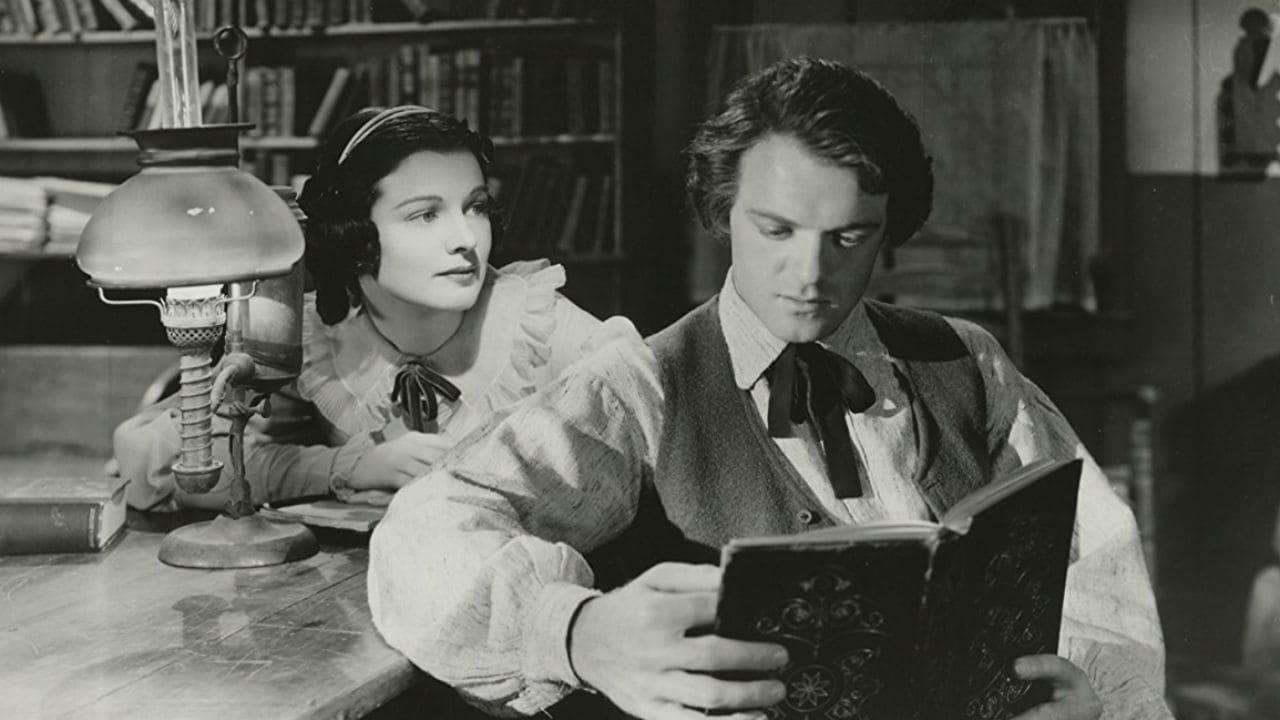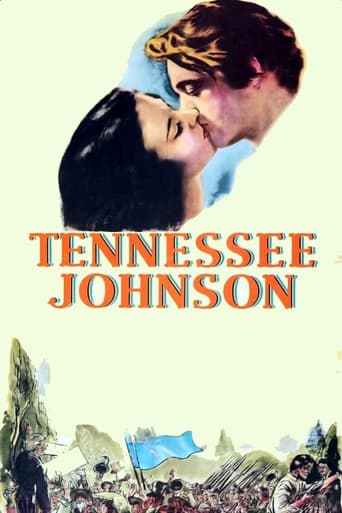

The subject of this biopic is Andrew Johnson, the President who succeeded Abraham Lincoln, the only American President who had no formal education whatsoever (and yet was a voracious reader), the only southern member of Congress who did not walk out when Secession arrived, the man who attempted to implement "presidential reconstruction" as outlined by Lincoln at the cabinet meeting on the last day of his life, and the first President to be impeached (the pretext being the ability of the President to dismiss a Cabinet appointee, a question later resolved by the Supreme Court in Johnson's favor). What dramatic material! But try to find a DVD of this movie! Johnson is condemned for his bluntness and, above all, for his racial views, which happened to be fairly similar to those of Lincoln. His great sin, however, was in considering the Constitution to be indeed the governing law of the land. In our current time he is condemned. The censors are determining what we can see.
... View MoreIt is very interesting how history actually changes over time. In other words, the same people and incidents can be seen VERY differently depending on when they are discussed in history books or portrayed on film. During the 1910s-40s, the Confederacy and Andrew Johnson were seen in a much more favorable light than they are today. Back in 1942, he was seen, generally, as an able president who was persecuted by Congress. In 1866 and today, he was seen mostly as a tactless obstructionist who did everything he could to prevent blacks from receiving their rights as citizens. Because of this, I doubt if you'll seen any sort of favorable film about the man for the foreseeable future.So on to the film. The production values are very nice--with fine acting and direction--just as you'd expect from MGM. Much of the film was NOT about Johnson's presidency--and this portion it generally got right. His wife did teach his to read and write and his path from local office to the Presidency was generally on target. However, when it came to his presidency, it only once made a comment about Johnson's ill-temper. For the most part, he's shown as a reasonable man who is besieged by an evil Congress. This is far from the case--as I mentioned above. And, Thaddeus Stevens and his friends were mostly caricatures of evil--which is also incorrect. Likewise, Johnson never actually addressed the Senate during his impeachment proceedings--this is pure fiction. Bkoganbing from Buffalo hit it on the head with his review as to the many inaccuracies of the film.What you're left with is a film that is entertainment but just wrong in too many cases to be taken seriously.
... View MoreThe post-Civil War period of Reconstruction (1865-1877) has always been one of the most controversial periods of American history; to some extent, it remains so today. At its core was the question of whether federal or state authority was to be paramount; variations on this basic argument continue to ring out in modern-day America. Yet this question has come to be overshadowed by an even more vexing problem: the lack of consensus on Reconstruction's basic morality as well as its constitutionality. Whenever Reconstruction is discussed today, a very prickly quandary must be raised: were the Radical Republicans in the House of Representatives really sympathetic to the civil rights of the freed slaves, or did they only desire to wreak vengeance upon the ex-Confederates in the South? Up until about the mid-1950s, most historians proposed the latter view. It is therefore something of a credit to William Dieterle, the director of this 1942 movie, that he broke somewhat with what was then conventional wisdom. Whereas the contemporary custom would have been to paint the Radical Republicans (and Pennsylvania Congressman Thaddeus Stevens in particular) as deranged and villainous, this film shows some restraint in condemning their actions and acknowledges the noble motives behind them. At the same time, Dieterle clearly rejects the late-20th/early-21st century portrait of President Andrew Johnson as bitter, raging white supremacist.True, both Johnson's and Stevens's less positive traits are played up: Johnson's alcoholism and violent temper, Stevens's smug pomposity. Yet both men come across ultimately as admirable, if only for the iron force of their wills in trying to achieve what each of them believed to be just - goals that happened to be mutually exclusive. They both allow their stubbornness and self-righteousness to drive them at each other's throats.Van Heflin is commanding as the President, while Lionel Barrymore manages to mine some humanity from the crusty Stevens. Best of all, perhaps, is the utterly convincing makeup used to "age" Andrew Johnson and his wife Eliza.
... View MoreI doubt if a film made in 2004 or after about Andrew Johnson would be as kind as this 1943 film. Johnson did support the North in the Civil War (he was the only Southern Senator to remain in the U.S. Government during the war, and would be appointed Governor of that portion of Tennessee from 1863 - 64). Lincoln, in order to have a strong National ticket in her 1864 election chose Johnson (a Democrat)as his running mate. So Johnson became Vice President. And then John Wilkes Booth shot Lincoln, and Johnson became President.Johnson was illiterate, until his wife taught him to read and write. He educated himself, and rose in the legal and political world of Tennessee (and then the nation). But he was a piece of "po' white trash", and remained so with all it's cultural baggage. He supported the North because he (rightly) distrusted the Southern plantation aristocracy (epitomized by Jefferson Davis). However - he hated slaves and free Black people. Hence his willingness to be soft on the South. Lincoln would have been soft too, but Lincoln had great gifts at managing his adversaries and probably could have arranged a compromise. Johnson was pig-headed. He antagonized the Radical Republicans controlling Congress. They waited for him to make a mistake, and he did (technically he violated the Tenure of Office Act, by firing Secretary of War Stanton without getting Congressional permission - this act was declared unconstitutional in the 1880s). Then followed his impeachment and the saving of his skin by seven Republican Senators who voted not to remove him. And those men all lost their Senatorial seats.In 1943 Johnson was considered a hero, for saving the Executive Branch from becoming a rubber stamp for Congress. Actually, there was nothing to show that some Radical Republican President could not have restored power to the Executive Branch if Johnson had been removed. He gets high grades for his grit and courage, but his pig-headed stupidity and racism sink his historical rating. Still Van Heflin, Lionel Barrymore, and the other actors (like Charles Dingle) make the film interesting and enjoyable enough. Good film making but mixed history. Two final points: Edmond Ross was in good health when he voted, but James W. Grimes of Iowa also voted for acquittal, and he had a paralytic stroke a few weeks earlier (he died within a year). Second: Andrew Johnson is the second Vice President of the name Johnson (and Lyndon Johnson the third Veep). The first was Martin Van Buren's Vice President, Richard Mentor Johnson of Kentucky, whose career as a politician might make a diverting comedy.
... View More